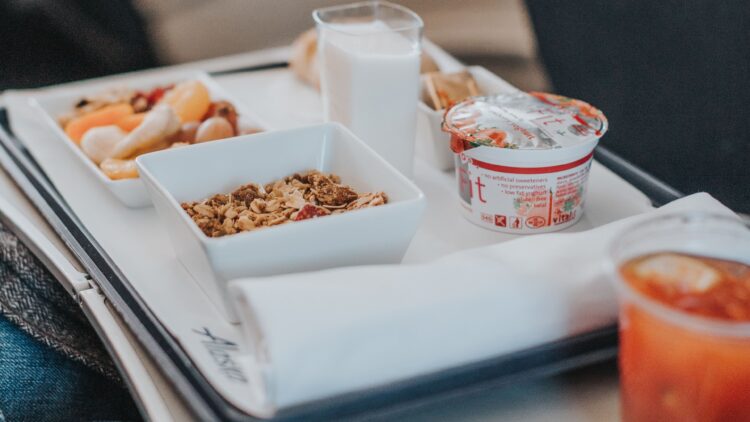Travel is food for the soul. It not only helps us to gain a more rounded perspective on the world but it can also genuinely help us to become more patient, understanding, and empathetic individuals.
That being said, travel isn’t always pretty and rarely tastes good — especially when you’re forced to dine on warmed-over airplane food. Which raises a fair question: just why does airplane food taste so bad and can anything be done about it?
To be well-traveled is one of the greatest and purest ambitions any human being can hope to attain.
Anthony Bourdain once said that “Travel is about the gorgeous feeling of teetering in the unknown.” Travel enacts a journey of self-discovery, growth, and rebirth.
When it comes to traveling, the destination is always the reward. The journey, however, can often be far from pretty.

To be well-traveled means to venture far and beyond your comfort zone. To get lost in cities where you neither know the route nor the language.
The only caveat is that in order to do that, you’re often forced to travel via some truly uncomfortable travel mediums.

I’m talking about train cars that have never come to know the soft breeze of air conditioning, buses that were built long before seatbelts became the status quo — and airline food that is all but inedible.
While we’re on the topic of airline food, have you ever stopped to wonder exactly how or why it tastes so bad?

It turns out that there’s actually a fairly scientific reason as to why airplane food tastes as disgusting as it does.
To begin with, the cabin air inside an airplane is roughly 15% drier than we’re used to.

It might sound crazy, but the cabin air inside an airplane is actually drier than in some deserts! This has a profound effect on our tastebuds as well as our sense of smell.
Once the plane begins its ascent, passengers almost instantly become dehydrated and dry-mouthed.

Also, once the plane reaches 35,000 feet (the average cruising height for commercial airplanes) the human tongue begins to go partially numb — thus tasting anything at all becomes almost impossible.
On top of the air being dryer, the pressure inside the cabin is much lower than on land.

Airplane cabins are designed to replicate the pressure on the ground, but it’s still far less than what we experience at sea level.
This causes the fluids inside your body to move upwards and your nasal cavity to swell.

If you’ve ever experienced a bad cold (or caught COVID) you’ll know all too well that a swollen nasal cavity doesn’t lend itself well to tasting food.
Research has also shown that the low temperature, combined with low air pressure, makes it more difficult for the sensory cells in our noses to activate.

In a nutshell, this means that it is far more difficult to smell on a plane. Without smell, we have a much more limited capability for taste.
Planes are also incredibly noisy vehicles to travel in.

You might be wondering what loud noise has to do with smell and taste. Roaring winds and the sound of the engine can create a constant “hum” that reaches levels of 85 decibels.
This is the equivalent of busy traffic in a major metropolitan city center.

As odd as it might sound, loud noises affect our ability to detect sweet flavors. However, loud noises also allow human beings to taste something known as “Umami” much more acutely.
Umami is primarily found in tomatoes, as well as in other rich and meaty foods

Fun fact: in 2008, the staff at Lufthansa airlines reported that their passengers were drinking as much tomato juice on flights as they were beer.
Lastly and most obviously, the method of food preparation is vastly different aboard an airplane.

Depending on the size, make, and model, airplanes can carry anywhere from 10 to upwards of 850 passengers at a time. It should go without saying that preparing food for that many people, all at once, is no easy task.
What you might also not have known is that due to food safety regulations, all food must be first cooked on the ground.

Gordon Ramsay himself would have a hard time preparing food for 850 people all at once! By the time you peel back the tin on your meal, it’s likely been reheated 1-3 times and prepared hours before.
Unfortunately, there’s very little that can be done as far as improving the taste of airline food.

All I can recommend is don’t walk onto a plane with a hungry stomach and lower your expectations. Trust me, it will make the first meal once you arrive at your destination taste all the better.

















































